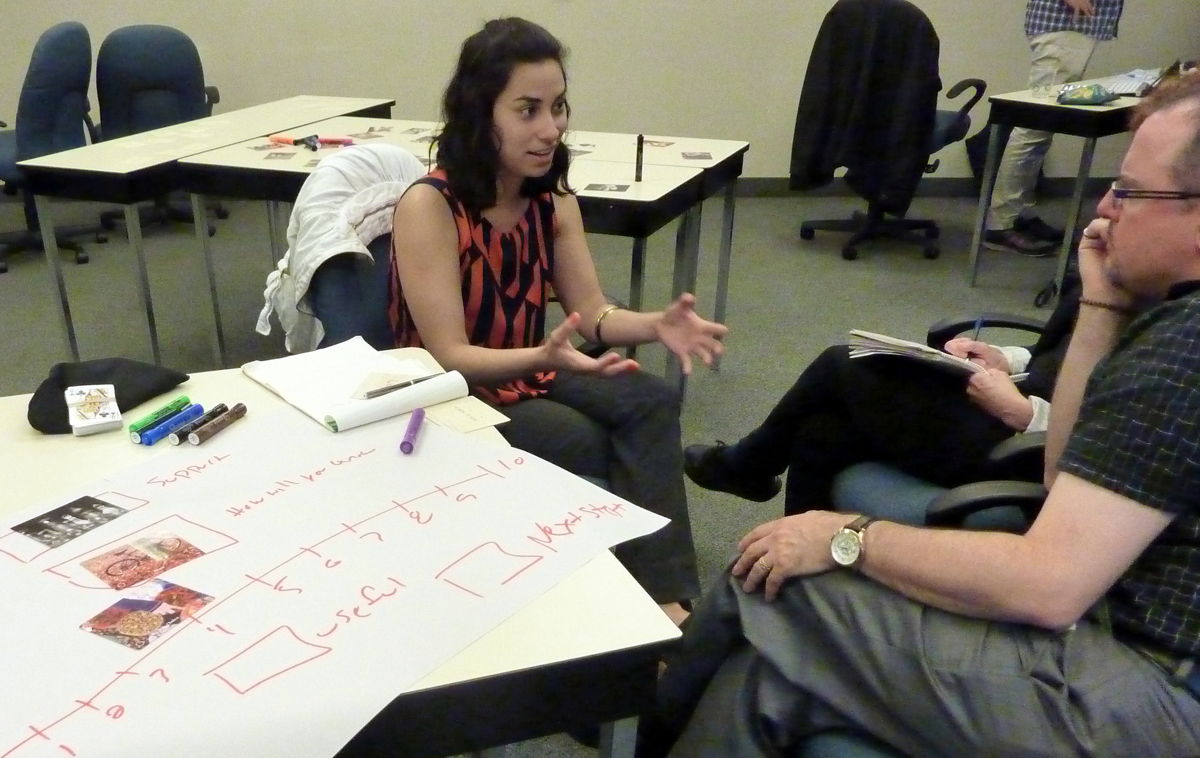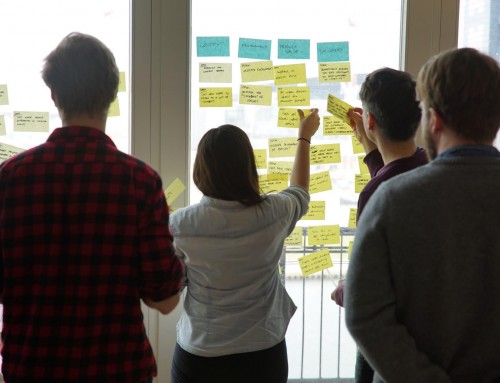Solution Focus
Description of Solution Focus
Solution Focus is a facilitation format I use frequently. The technique turns problems into solutions. It is part of Solution-focused brief therapy (SFBT).Solution Focus Facilitation is goal oriented, it targets the desired outcome of a coaching session as a solution rather than focusing on the symptoms or issues that brought the participants to the session. This technique emphasises present and future circumstances and desires over past experiences.

By helping clients to identify positive directions for change in their life and to attend to changes currently in process they wish to continue, Solution Focus facilitation helps clients to construct a concrete vision of a preferred future for themselves.
Solution Focus is based on assumptions that change is inevitable, that clients are experts on their own lives, that clients have strengths and resources, and that they can be supported to find their own solutions.
Solution Focus is client-centered and expresses optimism that problems can be solved.
Solution Focus facilitation strongly relies on the way how the facilitator asks questions and talks to the client:
- The miracle questions: invite the client to anticipate and describe in detail how the future will be different when the problem is no longer present ("problem is gone" question).
- Exception-seeking questions: encourage the client to identify these situations where the problem did not occur and to maximise their frequency. The goal is for clients to repeat what has worked in the past, and support confidence in taking more and more "baby steps" towards their ideal scenes.
- Coping questions: elicit information about client resources that will have gone unnoticed by them. True curiosity and admiration can help to highlight strengths without appearing to contradict the clients perception of "the problem."
The goal of coping questions is to give the client faith and immunity. In situations when the client says "I can't stand this any longer...", "This is too much for me..." coping questions like "How do you make it survive up to now?", "How do you make it go out of bed each morning?" invite the client to reflect on his/her own strength and power. - Scaling questions: invite clients to employ measuring and tracking of their own experience, in a non-threatening way. Scaling and measuring are useful tools to identify differences for clients. Goals and progress towards goals are often facilitated by subjective measuring and scaling.
- Time-out: a short "break" to reflect and summarize what has been discussed or worked on so far in the session. Time-out allows both clients and facilitator to reflect on conversations they have just concluded.
- Accolade: accolades take many forms, including compliments and cheerleading. Simple statements are intended to reflect back to clients positive observations about something they have said or done. The effect of accolades is multiple: it validates any progress that clients make; it encourages clients by reminding them of personal power over their well-being; it emphasizes strengths and abilities; it sets up the expectation that past success is an excellent indicator of future possibilities; it fosters confidence; and it facilitates relationship building and maintains rapport
- Task: facilitator and client agree on the next steps the client should take moving in the desired direction to achieve the goal. The client takes small tasks to realise outside the facilitation session ("homework").
The homework task is discussed at the end of the session, after the time-out. - Problem-free talk: talking about areas of life which are problem-free can be useful for uncovering hidden resources, to help the client relax, or become more naturally pro-active. This often uncovers client values, beliefs, and strengths. This strength from one part of their life can then be transferred-generalised to another area where new behavior is desired.
The acronym MECSTAT, which stands for Miracle questions, Exception questions, Coping questions, Scaling questions, Time-out, Accolades and Task summarises this questioning method (Keren Ganshorn, Alanna Danilkewich).
Rules of Solution Focus
- Change is inevitable.
- Believe personal change is constantly happening. People are able to change — only direction and intensity matters.
- Clients are experts on their own lives. Join with their competencies — the client knows the solution already in his/her unconsciousness.
- Clients have strengths and resources, and that they can be supported to find their own solutions.
- Pay particular attention to any behaviors on the client's part that contribute to moving in the direction of the client's goal, whether these are small increments or larger changes.
When to use Solution Focus
- Coaching of small groups or one-to-one personal coaching
- To foster people's strength.
- To give positive feedback
- To keep spirits up
- There no sufficient time for an extensive analysis of the history and cause of problems.
Facilitator Role
- Helps the client to identify his/her goal or goals.
- Generates a detailed inquiry about these goals surfacing your existing competencies and growing skills to achieve the goal as evidenced by information derived from MECSTAT.
- Helps the client to reinforce growing skills internally.
Further Reading
- Keren Ganshorn, Alanna Danilkewich: Solution-focused therapy Counseling model for busy family physicians. (PDF)
- Solution Focused Brief Therapy Association: http://www.sfbta.org
I do thank you Veronika Kotrba and Ralph Miarka (www.sinnvoll-fuehren.com) for a very inspiring open space session on Solution Focus at Agile Coach Camp Germany 2015, #ACCDE15 and for valuable feedback to this post.
: Michael Cardus, Solution-Focused Consulting and Training North America • Buck, via flickr.com • aiesecgermany, via flickr.com, .








Leave A Comment